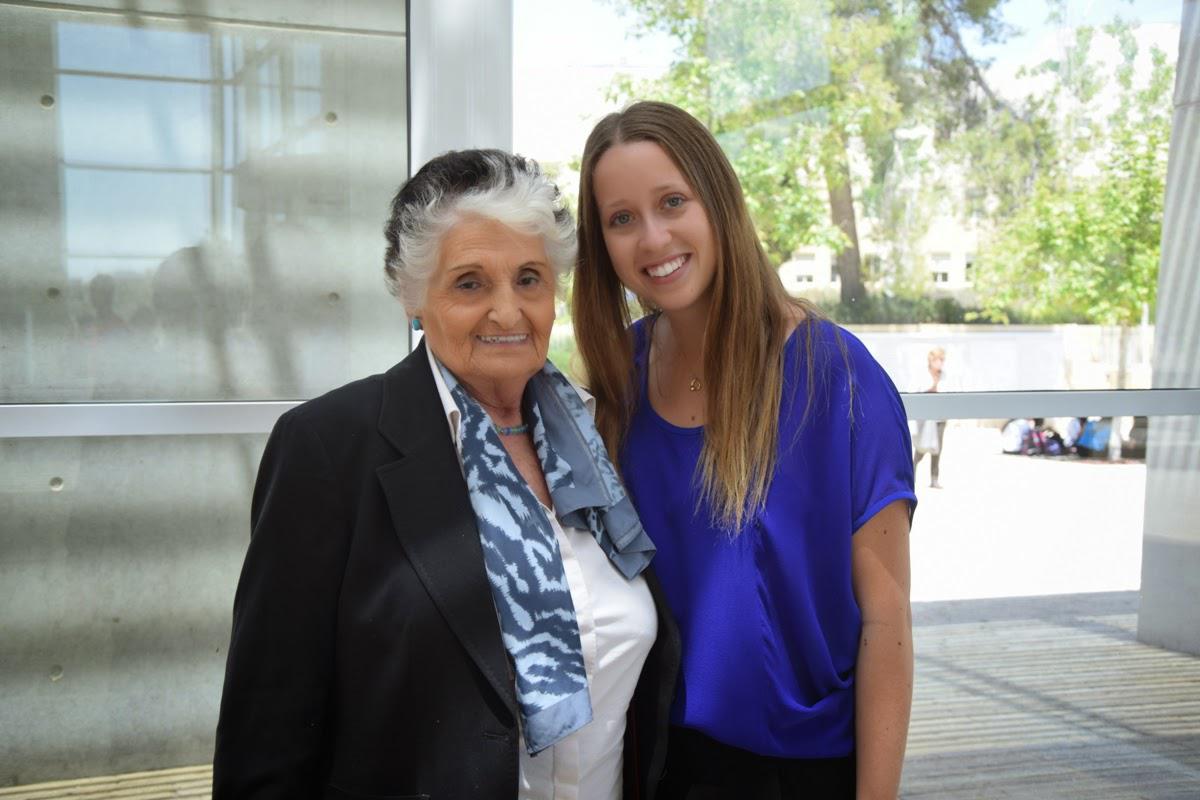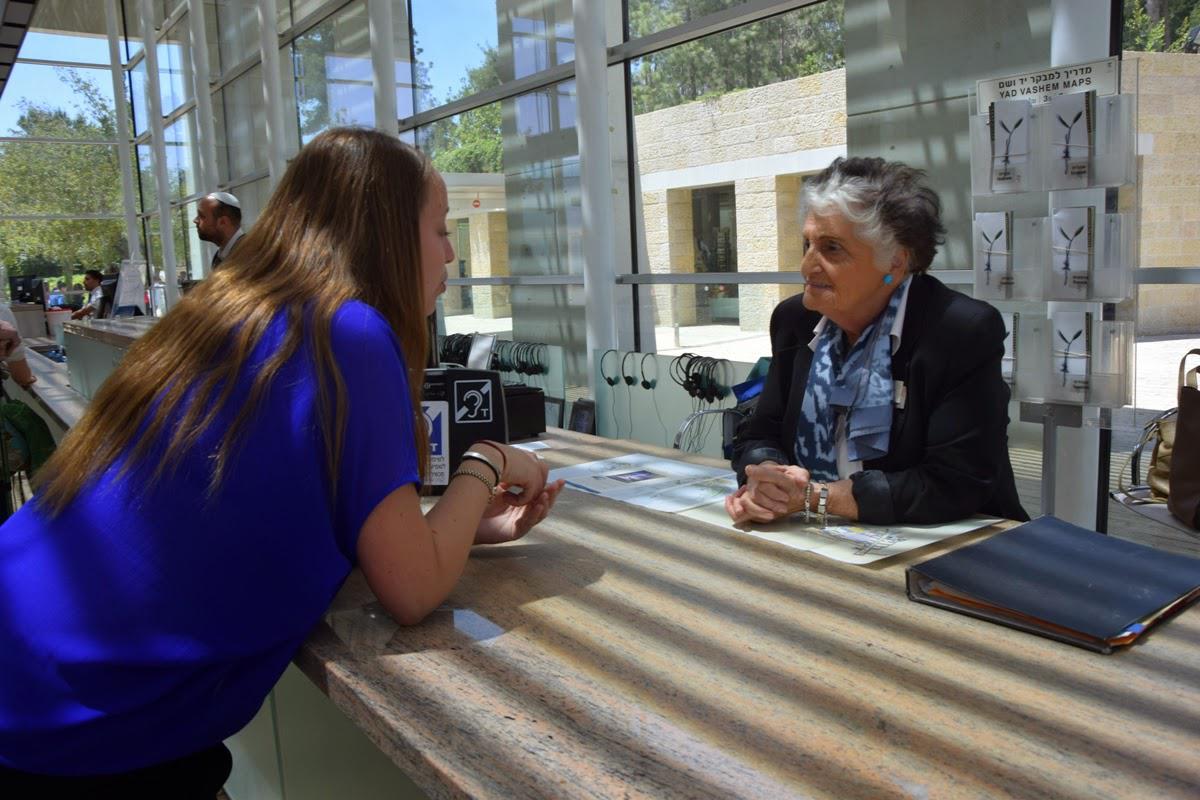



My name is Elysha Varenbut and I am from Toronto, Ontario. Currently I am spending a semester in Jerusalem studying at Hebrew University. I began volunteering at Yad Vashem this year, and met Holocaust survivor Berthe Badehi one day while listening to her special story. I instantly felt connected to her and her passion for life.
Berthe was born in Lyon, France in 1932 into a Jewish family. Her father, originally from Poland, left for France at the young age of 14 with the help of his two older sisters. His two sisters had sent money for his travels due to the increased tensions in Poland. Berthe's mother, originally from Poland, also left to Lyon, France. Additionally, both of Berthe’s parents were communists and members of the Jewish Communist Organization. They hoped communism would solve the problem in central Europe. When the war started and the Germans invaded France, the Jewish Communist Organization prepared themselves to fight the Germans. Additionally, the organization decided at this time that children should be sent away in order to keep them safe and for the parents to be free to fight in the Jewish underground.
In December 1941, when Berthe was only nine years old, her mother packed her a suitcase and Berthe left her family. About to leave behind her family and the only life she had ever known, she was scared and uneasy, but somehow understood it had to be done. Berthe was taken to a Christian family, but under the guise of a Christian child in order to hide her true Jewish identity. She was taken to a widowed woman, Madame Massonnat, and her three children. Madame Massonnat was a farmer and lived in a village in the Alpes about 100 kilometers outside of Lyon. Madame Massonnat lived a very simple life as a farmer; she was strict yet sensible, and treated Berthe as one of her own. Berthe explains, “She knew I was Jewish but never said a word… not to me, nor to her children.”
Berthe lived in a stable household with Madame Massonnat and her family for about two years before German soldiers began to invade the town in 1943. “When I was walking I would look down… I was afraid they would see my face and see I was a Jew. I was so afraid to say the word ‘Jew’." Not only was Berthe afraid for her own life, she feared that Madame Massonnat and her family were also at risk. It was forbidden for French citizens to help Jewish people; some French rescuers were punished and either deported or even murdered. However, although Madame Massonnat understood the risks of hiding Berthe this did not deter her from hiding her in her home with her children.
On September 3, 1944, French units liberated Lyon, and Berthe safely returned home to her mother and father in Lyon. Berthe continued living in Lyon with her parents until 1956, when she made Aliyah to Israel. Her parents later joined her in Israel in 1971.
Looking back and thinking about the hard times Berthe and her family went through, she still manages to remain positive and have an optimistic outlook on life. “Because I learned to be tough, I learned to survive,” she said. "I am grateful to the Massonnat family for saving my life. It is my duty to remind you that there are good people in the world.” Berthe’s story is just one of many that display actions of courage, bravery, and strength. The Massonnat family, along with other Righteous Among the Nations families and individuals who risked their lives to save Jews will forever be appreciated and admired.
Berthe has been through so many struggles and losses, such as the loss of her first grandson who was an officer in the army and killed in the first Intifada in 2002, and yet she is able to wake up every day with a smile and focus on the good in the world. Spending time talking to Berthe and listening to her stories has been a wonderful learning experience. Every moment I spend with her is very special, and she is continually helping me to learn and grow more as a person. She helps young individuals every day realize the importance of listening to the voice of survivors in order to keep their memories alive.




